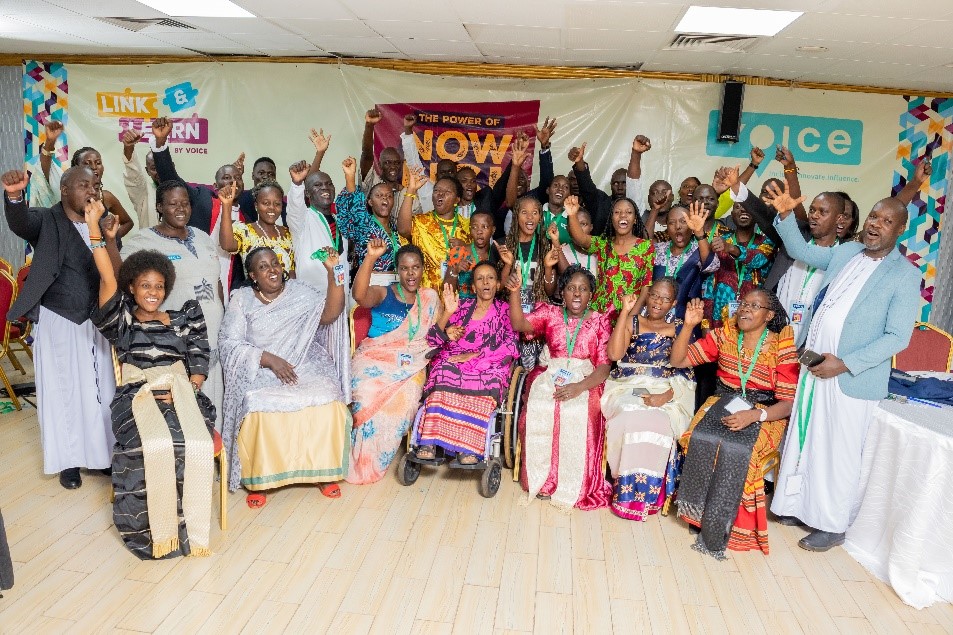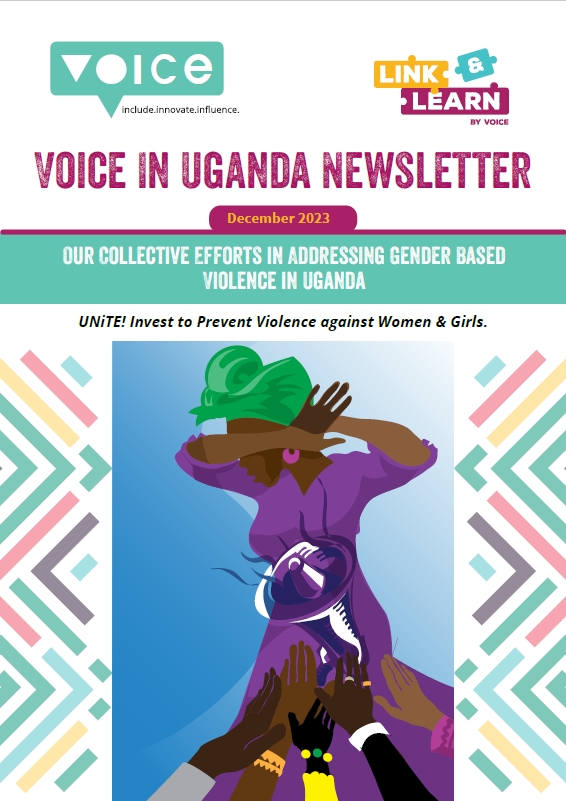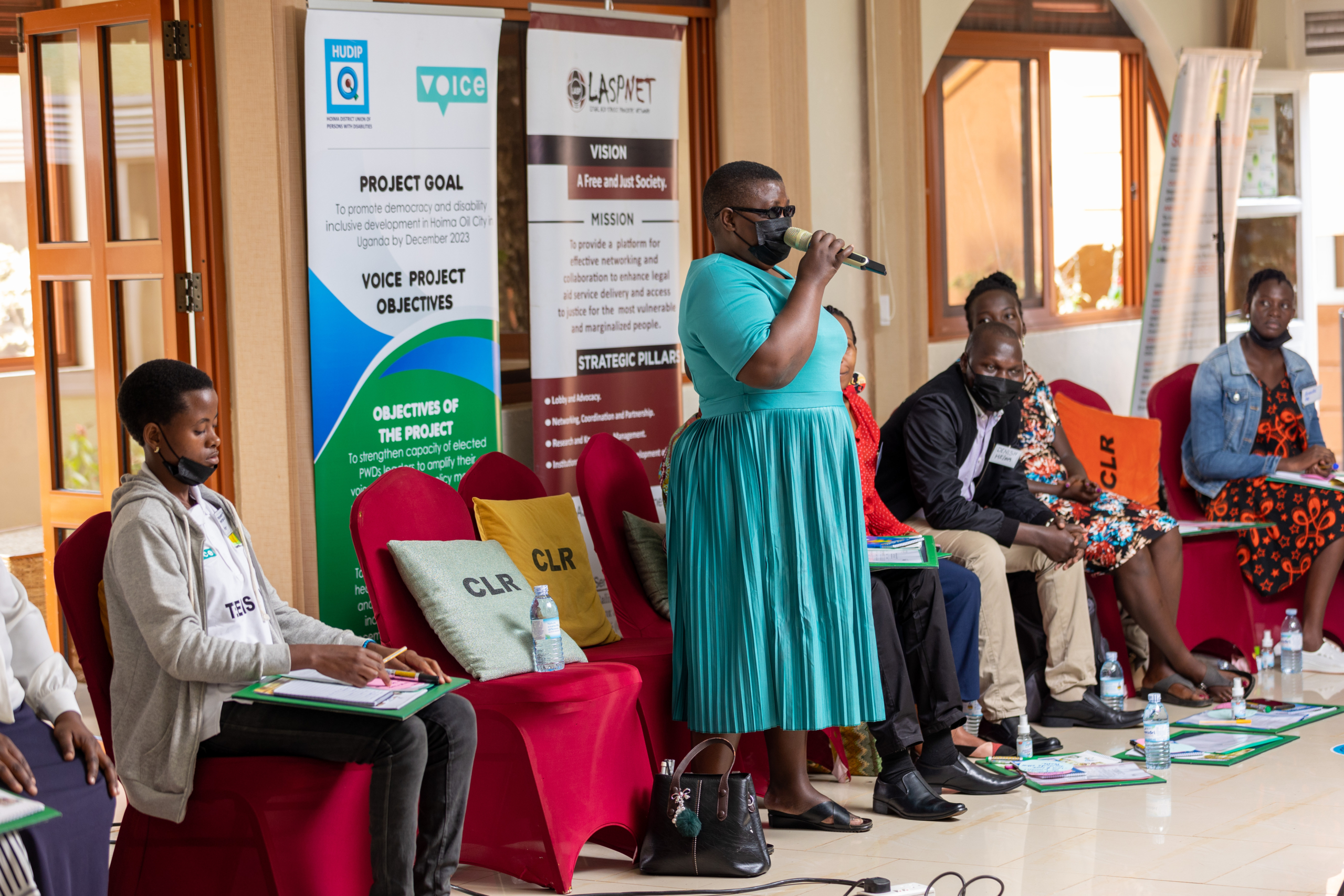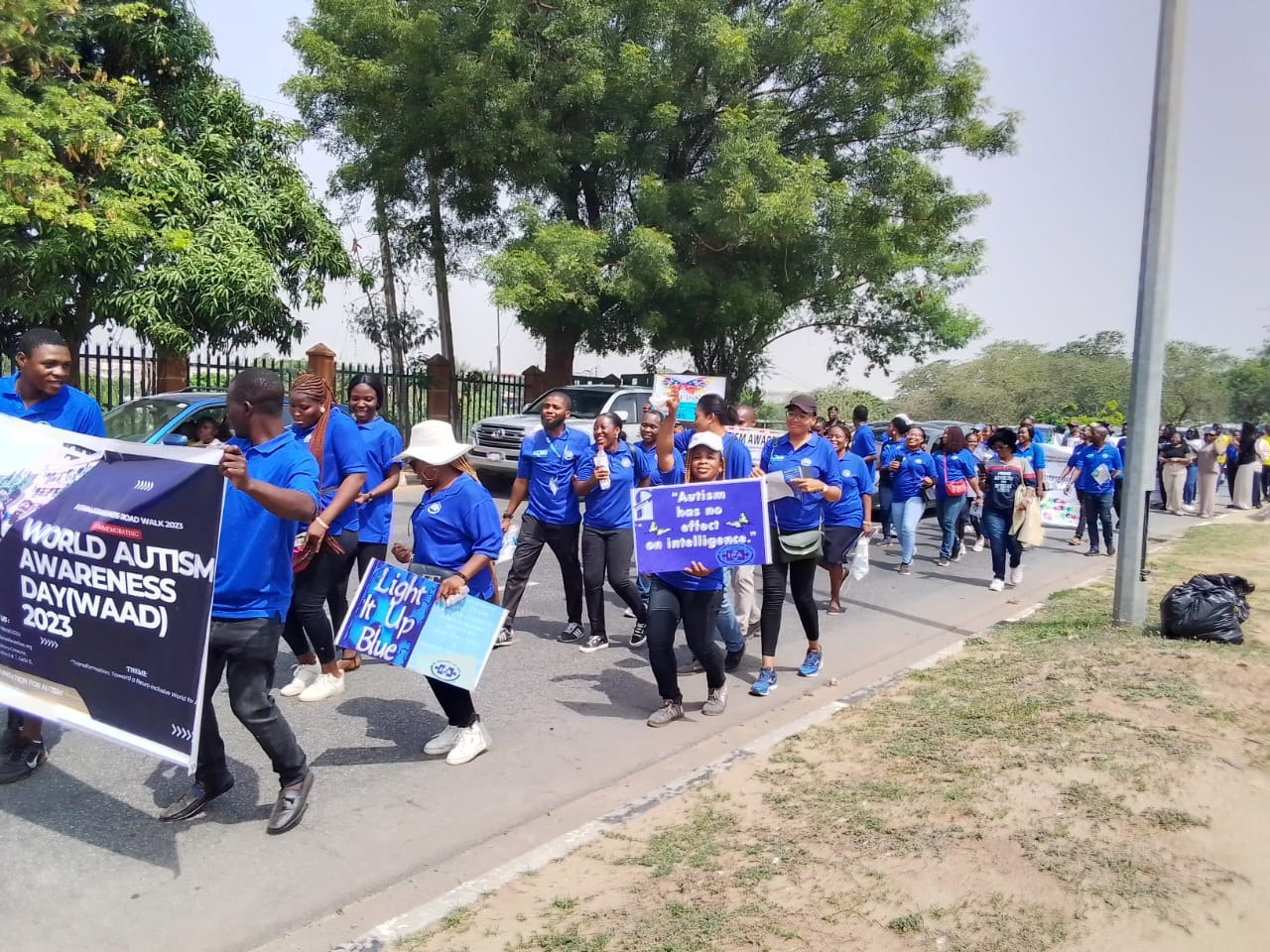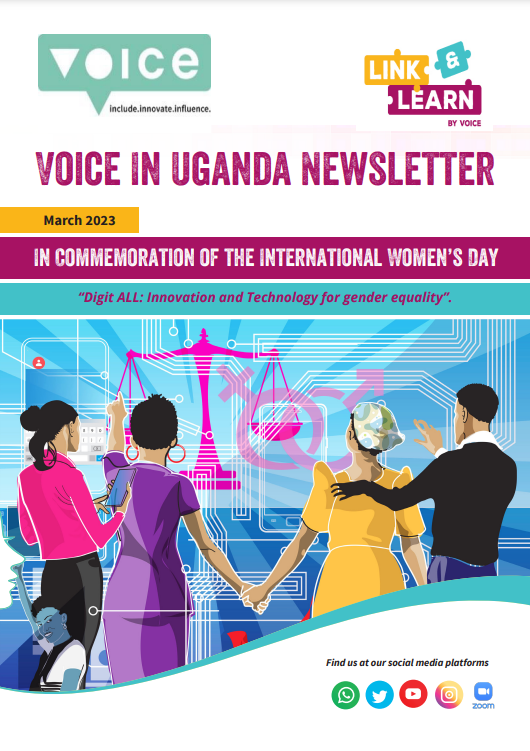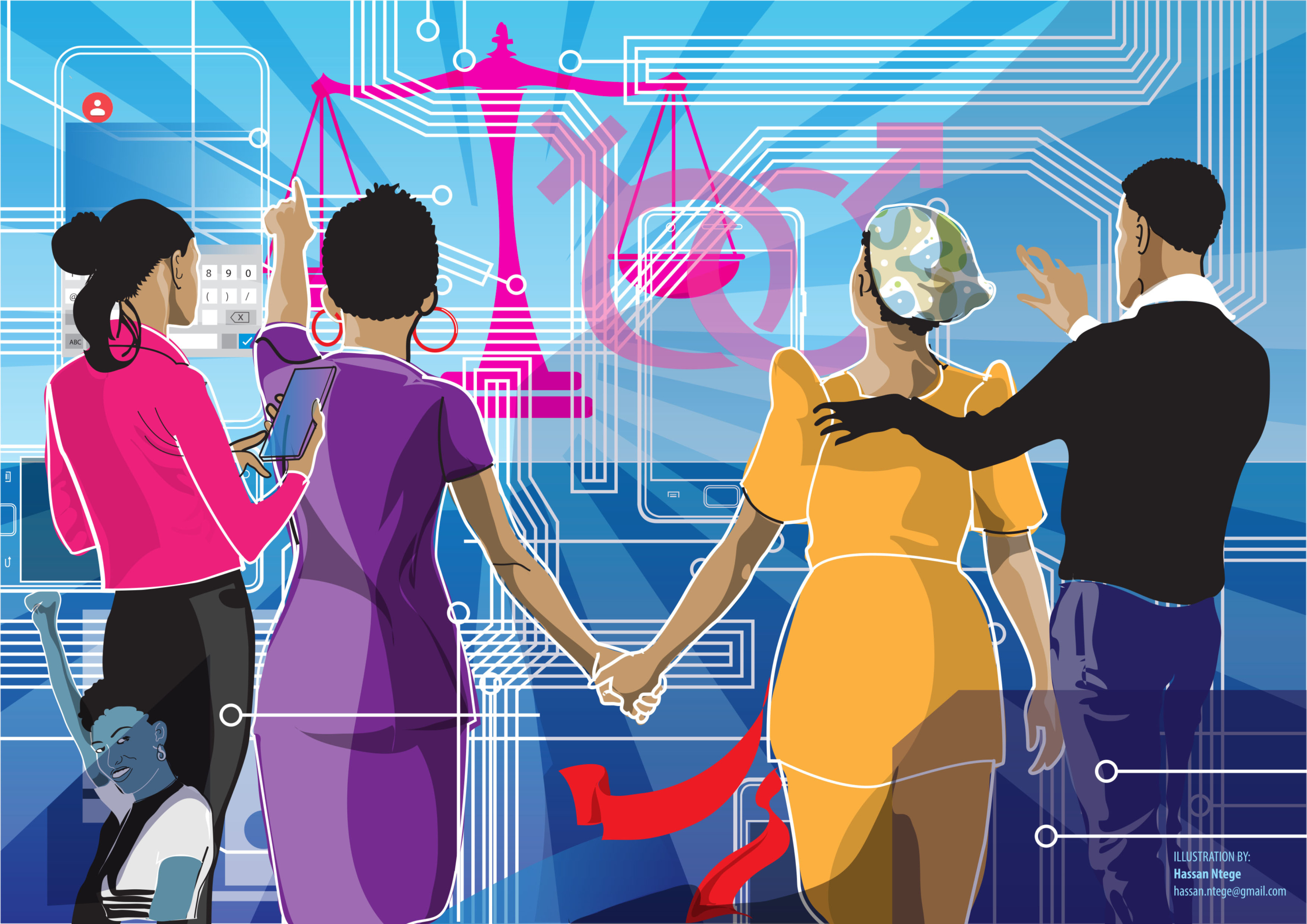How peer-led mentorship is changing the perceptions of influencing grantees in Uganda
By Edith Nantongo, Linking and learning facilitator, Uganda
February 2022 marked the start of an interesting journey for nine influencing grantee partners in Uganda to contribute to changing the lives of rights holders in their communities.
From February to April, 2022, the Linking and learning facilitators (Legal Aid Service Providers’ Network (LASPNET) and Strategic Link) held a kick-off meeting and needs assessment meetings where rights holders and grantees articulated the support, they required to smoothly deliver their Voice funded projects.
From the 10th -14th May, 2022 the linking and learning facilitators and fellow grantees(peers) undertook blended linking and learning hands-on mentorship. The activity was experiential in nature allowing grantees to practice what they learnt. The learning sessions were to address the prioritized learning needs for three (3) influencing grantees including Joy Initiative Uganda(JOYI), Community Volunteer Initiative for Development (COVOID) and Gulu Women Economic Development and Globalization (GWED-G).
Each of the grantees has a unique undertaking; JOYI is implementing a project “Doors will open for fisher folk self-led youth”. The project implemented in in the two sub counties of Kamengo and Buwama in Mpigi District, Central Uganda targets youth fish folk and sex workers through strengthening fisher folk youth participation to influence Local Government decisions for improved social services, health and education. COVOID on the other hand, is “Empowering Survivors of GBV to fight GBV” in Bugongi Town Council and Kigarama Sub county in Sheema District, Western Uganda. GWED-G is “Strengthening Participation and Accountability through Community Engagement’ targeting Youth, Persons with disabilities, local government representatives and community-based organisations”. Their goal is to empower them to contribute to the enhancement of women’s movement capabilities in influencing social service delivery in Gulu, a post-conflict District in Northern Uganda.
In Mpigi, Centre for constitutional Governance (CCG), one of the influencing grantees was privileged to share their social media advocacy experience with JOYI. JOYI was looking for the same skills to support their fisher folk and sex workers to use social media platforms such as twitter, Facebook and YouTube to lobby and advocate for improved social services in the fishing communities targeting District and Local leaders. During the mentorship session, Ritah Asimire the communication officer at CCG took the participants through the different social media platforms, how to set up accounts, and the impact of social media in project advocacy and implementation. A practical session was held to guide the JOYI team through setting up Twitter, Facebook and YouTube. This resulted into live tweeting and posting about the mentorship activity on both twitter and Facebook that received more than 20 likes in a period of 2 hours.
In Gulu, Mr. John Mary Nsimbi a trainer from Hoima Union of Persons with Disabilities (HUDIP), another influencing grantee partner held a practical session on how to implement disability inclusive community advocacy interventions. While using a mix of presentations, round table discussions, and individual assignments.
John Mary helped the team at GWED-G to understand Disability Inclusion and how they can apply the principles to engage persons with disability who are key rights holders on their project. The session challenged everyone’s thinking about disability and helped the team to understand that disability management starts with an individual. It was also realized that the negative attitudes towards PWDs are built on social construction and have no meaning. At the end of the session, GWED-G team resolved to develop a disability inclusion policy for the organization, engage PWDs at every stage of project cycle and to develop a learning question around disability
inclusion in the implementation of their Voice funded project.
In Sheema District, Mr. Vincent Mutonerwa, a lawyer and board member at LASPNET supported the team at COVOID to understand legal aid services delivery and referral mechanisms for GBV survivors. The team was helped to understand the existing legal framework on GBV including; Universal Declaration on Human Rights, the Declaration on the Elimination of Violence against Women, the Constitution (1995) of Uganda (amended), the Domestic Violence Act 2010, and Penal Code Act, Divorce Act, Succession Act and Children’s Act. On the whole the team was happy to understand legal aid more and they pledged to make use of the existing laws and to strengthen partnership and referral networks with existing legal aid service providers and other CSOs rendering different services towards GBV survivors in the district and the Western Region.
The linking and learning facilitators also delivered practical sessions to the 3 grantees on documentation, community engagement and how to use the Voice digital platforms as requested by the grantees.
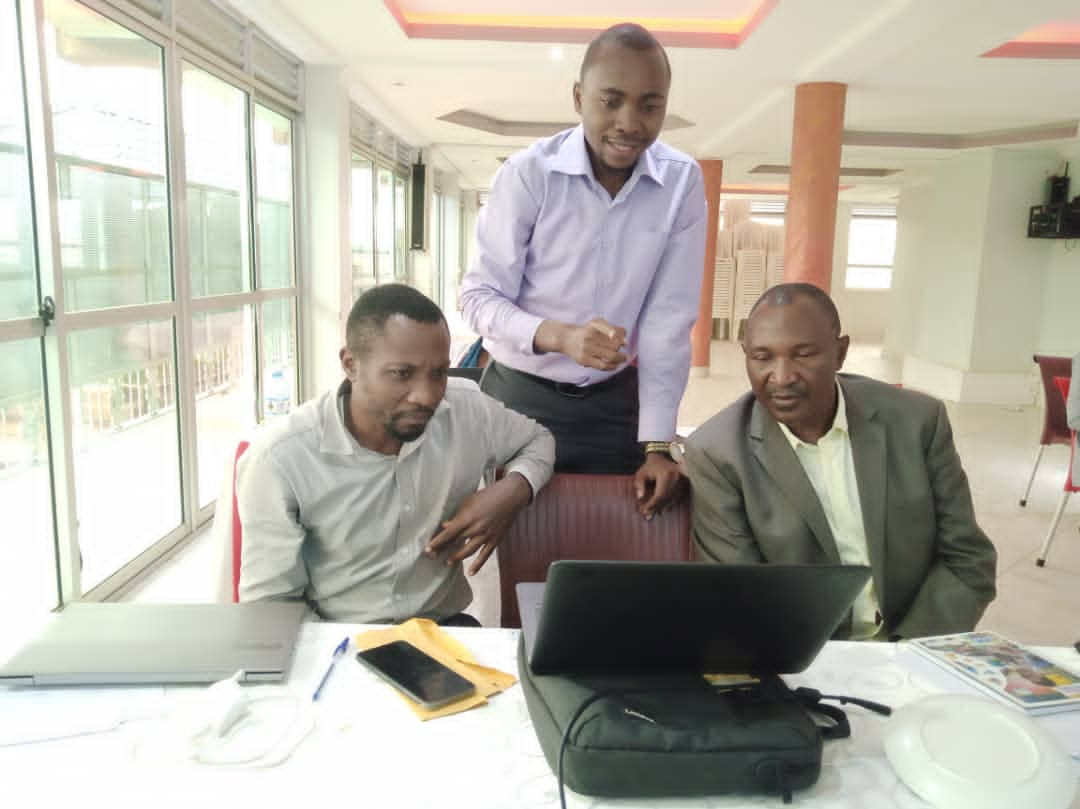
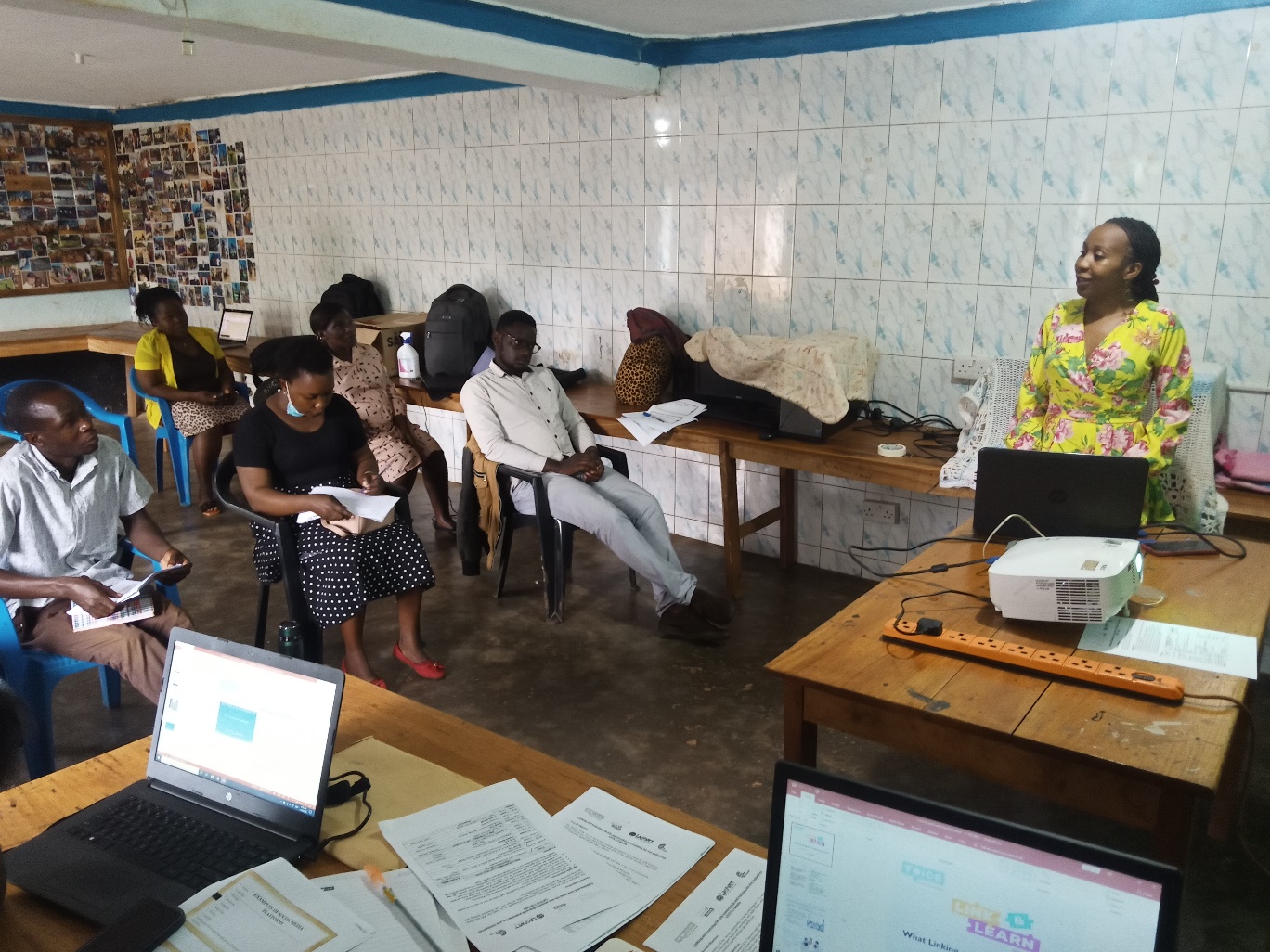
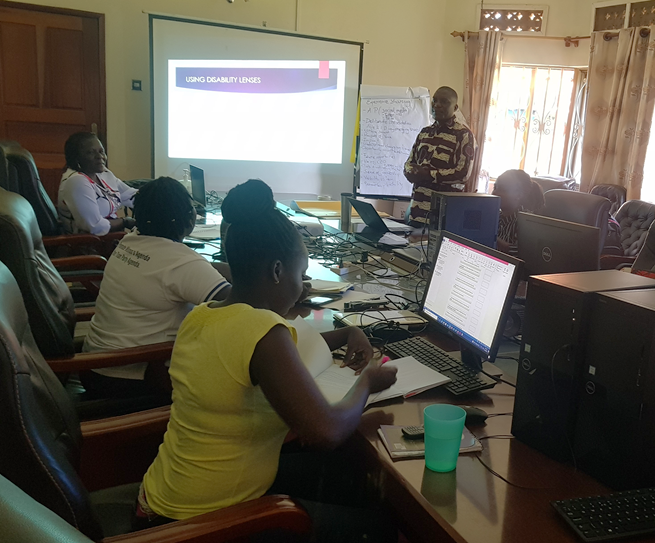
At the end of the activity week, both the peer support organisations and the recipient organisations were gratified about the peer learning activity. The activity allowed the influencing grantees to acknowledge that whereas they are strong institutions, they need to learn from each other.
“I have come to learn that we are all potential candidates of disability, anything can happen. Today, our colleagues at HUDIPU have reawakened us to the realities of disability inclusion in our work.
Also, our linking and learning facilitators have equipped us with skills on how to write stories of change which is going to improve our documentation of the change from our project” – Sandra Anena, Voice Project coordinator, GWED-G
“I am one of those people who is always central at proposal development and I must confess that including issues affecting persons with disability has not always been a priority. After receiving this knowledge on disability inclusion, I appreciate the role of persons with disability and their challenges. We who have benefited from these sessions will take the opportunity to advocate for disability inclusion in office and outside office especially in the field. For example, when mobilizing for an activity, we need to categorically engage the PWD to participate but also take up some roles in activities. – Beatrice Abwola, GWED-G
“I’m happy to have shared my knowledge with the team at COVOID. By appreciating the numerous legal instruments addressing Violence against Women such as the Domestic Violence Act among other laws, I’m confident that the team will have successful project implementation. Furthermore, mapping and engaging the various stakeholders and referral pathways is significant to offering timely response to victims of GBV”‘- Mr. Mutonerwa Vincent, LASPNET Board member.
“We are now conversant of what linking and learning entails and your roles as the facilitators… Ms. Catherine Kamusiime, the Monitoring and Evaluation Officer, COVOID.
“We can now ably log into the Voice Online platform system, upload our work and also learn from what other grantees what they are doing. We have been active on the Grantee WhatsApp Platform’’ remarked Mr. Agaba Anthony, Project Coordinator, COVOID.
“The orientation sessions on how to use social media in project advocacy and implementation, community engagement as well as development of knowledge products have been eye-openers for me and the team. We are going to put this knowledge and skills into practice so that we improve as a team moving forward. We appreciate the linking and learning facilitators for sparing time to come here and take us through these sessions and for sharing their knowledge and skills with us on linking and learning. We will not remain the same team after this engagement” Florence Nakayi – ED JOYI Uganda
The on-job mentorship activity was perceived by the grantees as a timely intervention since they were starting activity implementation. Having the linking and learning team working closely with grantees to support fellow grantees was both a humbling and empowering process. The practice approach will be scaled-up during upcoming mentorship sessions for other grantees.

